Deciding on the right email marketing and automation software is crucial for business owners looking to nurture leads, drive sales, and grow their customer base. Two popular options in this space are Klaviyo and Infusionsoft (Which is now called Keap) – but which one is the best fit for your needs?
In this comprehensive Klaviyo vs Keap comparison article, we evaluate key factors business owners should consider when choosing an email marketing platform.
We will look at market position, ease of use, customization options, features and integrations, performance benchmarks, customer support, pricing models, and overall reputation. Our goal is to help you determine which software aligns closest with your business goals and audience needs.
1. Understanding the Basics
Founded in 2012 by Andrew Bialecki and Ed Hallen, Klaviyo is a fast-growing email marketing and automation platform. Known for its straightforward pricing and powerful features, Klaviyo has over 20,000 customers including Custom Ink, Chubbies, and Hari Mari.
Launched in 2001 by brothers Clate and Scott Mask, Infusionsoft (now Keap) is an established player in the marketing automation space with over 100,000 small business users. Long popular with service-based companies, Keap touts robust CRM and sales funnel capabilities beyond basic email.
With $200+ million in funding and rocketship growth, Klaviyo has quickly gained market share yet still trails category leader Keap. However, Keap’s slowing expansion shows small cracks in its longtime dominance for SMB marketing automation.
Klaviyo Facebook Group – 37K members
Keap Official Community on Facebook – 18K members
Join these active communities of users to ask questions and get feedback on both platforms. With over 50,000 members combined, they provide valuable crowdsourced insight.
2. Features and Functionality
Marketing Automation
Klaviyo
Klaviyo offers a visual, drag-and-drop builder to create multi-step workflows and complex automation without code. You can trigger emails, SMS, and post-purchase sequences based on actions, inactions, custom metrics, or timed delays. Pre-built templates help you create abandon cart flows, welcome series, referral programs, and more in minutes.
With Klaviyo, you define granular segments and customize messaging to target groups based on any data point – from geography to purchase history and page views. Dynamic content personalization allows tailoring automated emails with merge tags.
Keap
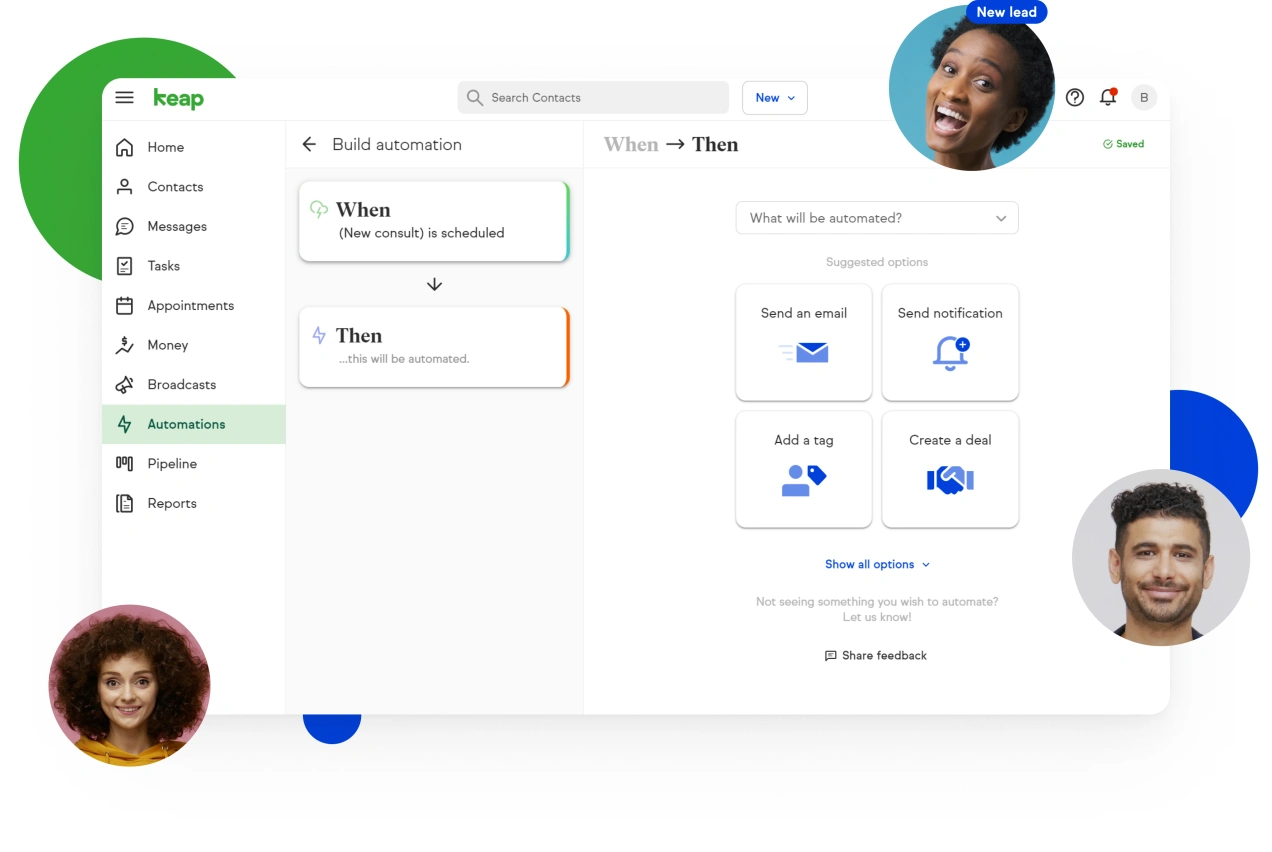
Keap touts advanced lead scoring, tagging, and comprehensive CRM features to segment contacts and triggers automations. You can track interactions across channels to nurture contacts with tailored content based on interests and activity.
The visual campaign builder centralizes multi-step follow-ups, appointments, reminders, and referrals within sales stages. Define conditional branches to send different messaging if a lead requests a demo vs downloads an ebook vs makes a purchase. Keap offers 500+ pre-built automation spanning common small business scenarios.
Winner: Klaviyo
With easier set-up, superior email deliverability, and more intuitive creation of multi-channel sales automation, Klaviyo narrowly beats Keap for best marketing automation capabilities.
Keap wins on the breadth of customer relationship management features, but most small businesses will find Klaviyo better optimized for e-commerce scenarios and converting cold leads into loyal customers. Its automation workflow builder enables powerful segmentation without extensive coding knowledge.
Email Templates
Klaviyo
Klaviyo is an all-in-one solution that offers hundreds of preloaded email templates designed, mobile-optimized email templates to choose from for welcome series, cart abandonment, sale announcements, promotions, newsletters, and more. You can easily customize colors, fonts, and design elements with the drag-and-drop editor. Dynamic content blocks let you quickly personalize emails with merged customer data.
The template options strike a nice balance between basic starting points that are fast to edit and more polished designs ready to deploy out-of-the-box. While not as extensive as Keap’s options, Klaviyo templates are tilted towards e-commerce use cases with customer lifecycle scenarios.
Keap
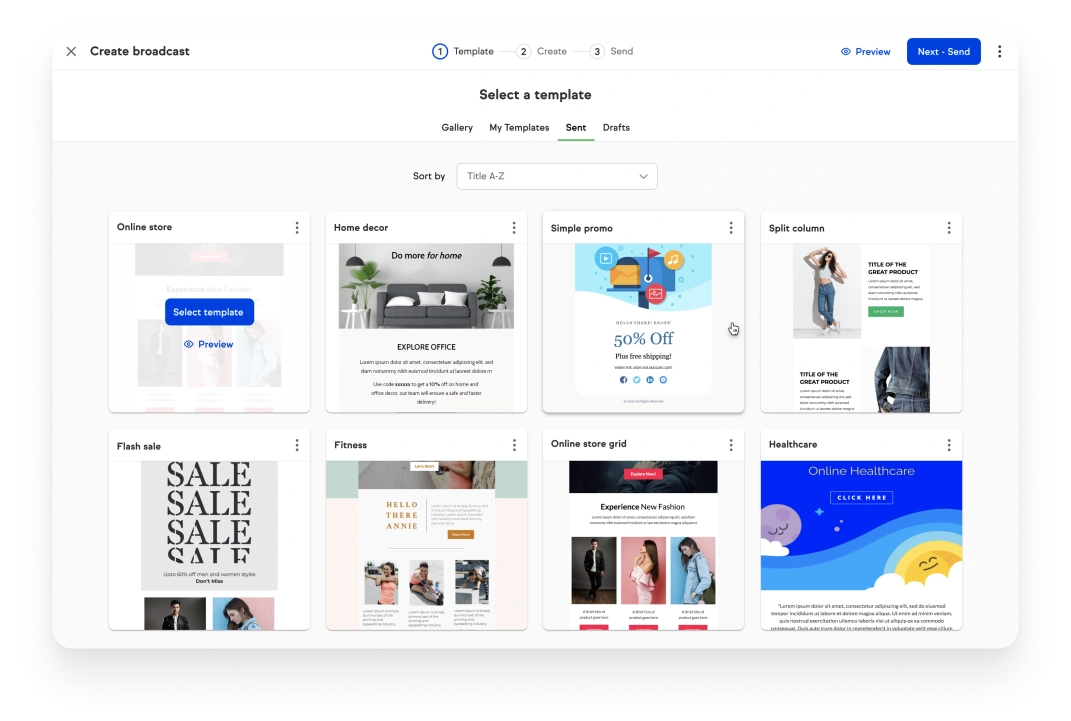
True to its positioning as a full-featured marketing CRM, Keap offers thousands of simple templates spanning industries, campaign objectives, and content styles. You can start from scratch or leverage pre-built templates for lead nurturing, subscriber welcomes, browse abandonment, appointments, events, promotions, and other client actions.
The visual editor makes customizing templates easy, with a what-you-see-is-what-you-get (WYSIWYG) interface for showcasing how your images, colors, and layouts will display across devices. Tagging and segmentation allow incredible personalization without coding knowledge.
Winner: Tie
Both Klaviyo and Keap offer excellent starting templates to optimize the creation of emails that convert. Keap edges out with more options while Klaviyo smartly focuses its library on core e-commerce scenarios.
For most online stores, Klaviyo’s templates will suffice – but service businesses may value Keap’s wider selection spanning client services. We score this category a tie since both platforms enable easy customization for polished, high-converting email templates that delight subscribers.
Segmentation
Klaviyo
Klaviyo enables powerful behavioral segmentation to divide contacts based on any metric – from customer properties like location or lifetime value to on-site actions like pages visited or links clicked. You can get hyper-specific targeting groups like “viewed product page more than 3 times” or “opened last 3 emails”.
The platform makes it easy to create dynamic segments that automatically update based on criteria you specify. For example, target customers that have abandoned carts in the past 2 weeks or recently subscribed to your newsletter. Klaviyo also offers A/B testing for emails, landing pages, subject lines, and more.
Keap
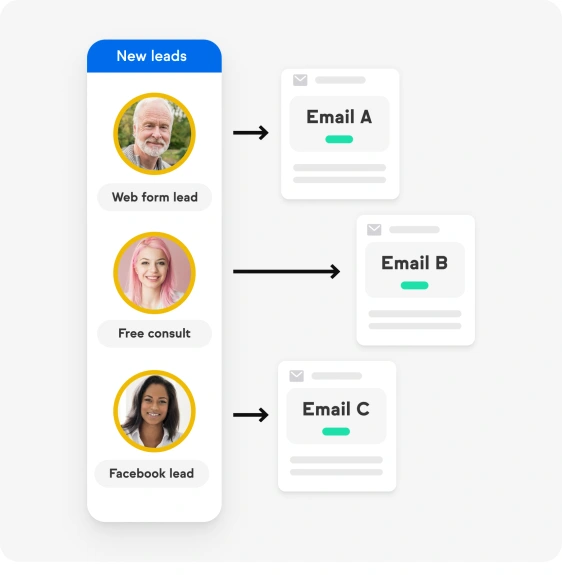
Keap shines for lead nurturing workflows, with tagging and scoring systems that segment contacts based on sales funnel stage and activity. Assign points for email opens, content downloads, site actions, and more to focus messaging on hot leads.
You can group contacts by lifetime value, order frequency, demographic data, and interests. Keap features robust A/B testing capabilities for email content, calls to action, send times, and other variables. Landing page templates come equipped with conversion tracking.
Winner: Klaviyo
The Klaviyo Keap comparison shows that Klaviyo is the clear winner. For the direct needs of most e-commerce stores, Klaviyo provides the segmentation essentials in a streamlined package. Keap has deeper CRM segmentation focused on assessing lead quality over the customer lifecycle.
However, for simply converting more sales, the email marketing software has an intuitive behavioral filtering and dynamic groups better support targeted promotions and personalized communication without extensive set-up. Granular segmentation achieved easily is why Klaviyo won this round.
Analytics
Klaviyo
Klaviyo packs robust email and landing page analytics into an intuitive, visual dashboard. It tracks opens, clicks, bounce rates, conversions, and revenue on a granular campaign level. You can see performance metrics for individual emails, landing pages, forms, and automation as well as comparative reports.
Custom metrics empower deeper analysis – say tying revenue from a promo code to its launch campaign. Dashboards display key trends and insights, while exportable raw data integrates with other business intelligence tools. Overall, Klaviyo strikes a balance between powerful analytics and simplified reports for data points accessible to non-technical users.
Keap
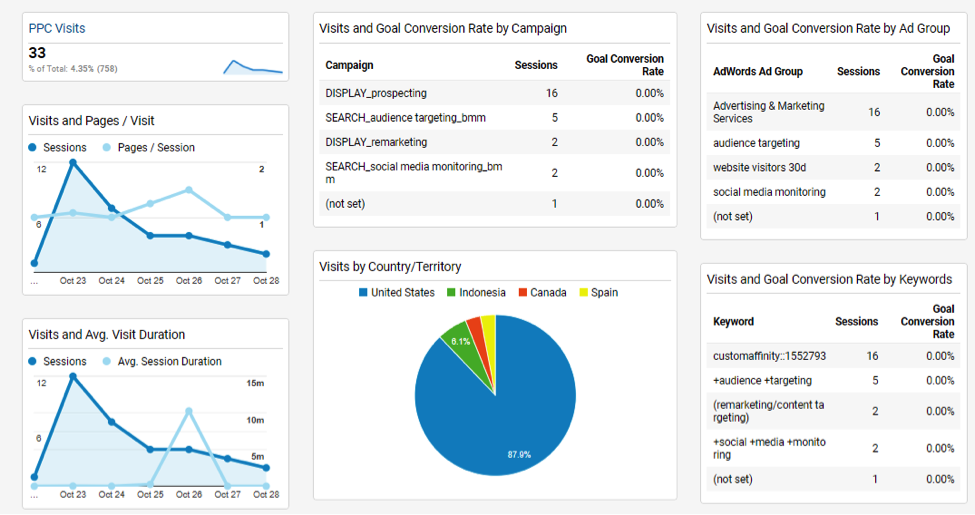
True to its positioning as an advanced CRM platform, Keap serves up in-depth analytics on sales pipeline performance. Individual contact timelines trace interactions across channels, plotting email opens, site visits, downloads, and purchases on a visual graph. Pipeline reports reveal lead conversion rates within sales stages.
Customizable dashboards display metrics focused on lead quality, customer lifetime value, and marketing campaign ROI – beyond just email. Real-time data integrations with web analytics tools allow deeper analysis, though some users may want even more raw reporting. Keap wins on the breadth of reporting but falls short on intuitive access needed by small e-commerce stores.
Winner: Klaviyo
With its fast and visual data insights focused squarely on optimizing email and landing page conversion, Klaviyo earns our nod over Keap for web stores and lead gen sites. Klaviyo strikes the right balance between simplicity and depth for growing SMB e-commerce analytics needs.
Even with less robust customer lifetime value tracking, Klaviyo provides the campaign performance visibility required for higher email ROI.
Unique Features
Klaviyo
Klaviyo shines for SMS and web push notifications to complement email. Its SMS editor and targeting matches email capabilities, with automation based on behaviors and workflows to maximize the effort of gaining each new subscriber. Web push notifications drive re-engagement with customized prompts for abandoned carts or targeted promotions.
As an e-commerce-focused platform, Klaviyo also provides native integration with platforms like Shopify and WooCommerce. This allows two-way syncing of customer and order data to inform personalization. Other unique features include global frequency capping to prevent over-messaging customers.
Keap
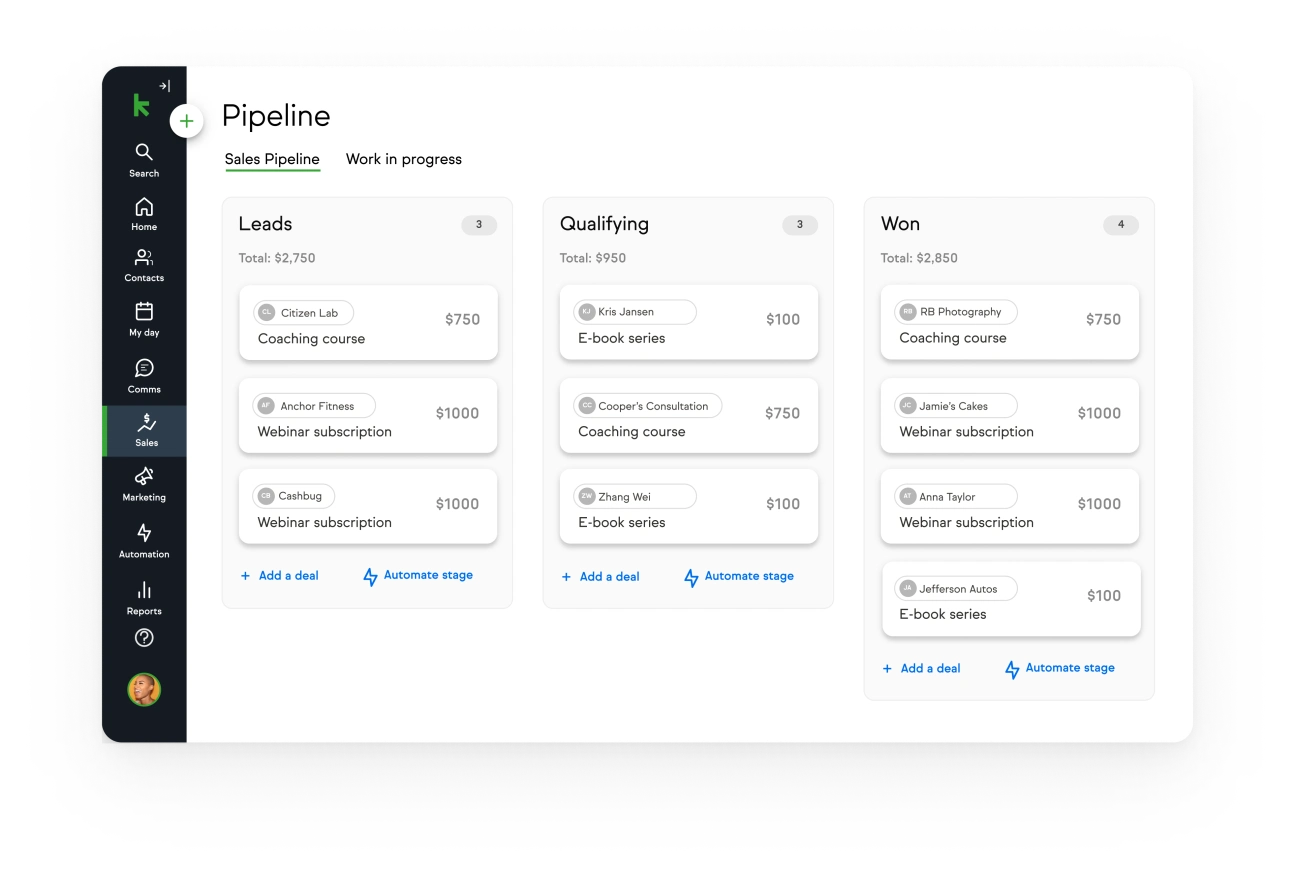
Keap offers optional CRM modules for generating new leads and contact management, appointment scheduling, and billing. This provides robust sales funnel tracking and advanced lead nurturing workflows beyond basic email marketing needs.
Other unique features include commission tracking for sales teams and advanced order forms to facilitate product sales and drive revenue. Keap also touts superior tag-based segmentation, custom field creation, and Zapier integration capabilities compared to Klaviyo.
Winner: Tie
In different ways, both platforms bring unique capabilities beyond basic email marketing. Keap certainly wins on the breadth of high-demand sales and marketing CRM features for advanced lead tracking across multiple channels. But Klaviyo’s e-commerce focus provides time-triggers, SMS and web notifications – all of which are important for customer engagement.
Calling this a tie, Klaviyo gets the nod for simpler email and conversion-centered small business marketing. While Keap takes it for large companies and service businesses needing expansive CRM. Choose based on specific use case needs.
3. Ease of Use
Klaviyo
Klaviyo shines for intuitiveness and simplicity right from onboarding. There’s a setup wizard, and its straightforward drag-and-drop interface allows easy building of email campaigns, landing pages, and basic workflows just using the platform itself.
With predefined templates and automation building blocks, even first-time email marketers can send emails and launch highly targeted sequences. Clean segmentation options avoid complexity.
Overall Klaviyo creates a strong foundation for effective email marketing execution through an intuitive product experience focused purely on conversion optimization without extraneous features that confuse clients.
Keap
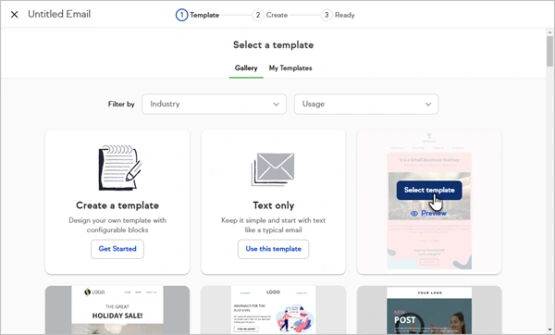
Keap offers robust email marketing automation capabilities but behind a much steeper learning curve. You may need expert help to leverage its expansive CRM-driven platform fully, from initial complex configuration to advanced lead scoring rules.
That said, Keap has invested in improving beginner friendliness recently. Its campaign builder does offer drag-and-drop automation construction, while new sales pipeline visualization condenses data well. Still, the downside remains in the lack of email template focus and contacts living in a universal CRM rather than the email-centric system.
Winner: Klaviyo
With its laser focus on email conversion through sales and marketing workflows optimized for e-commerce, Klaviyo handily beats Keap for beginner friendliness. Preconfigured integrations, drag-and-drop tools, and predefined customer scenarios provide more intuitive onboarding for SMBs.
Keap undoubtedly packs more robust features but at the cost of ease. For fundamentally getting email marketing and basic automation running quickly, Klaviyo wins for superior usability.
4. Email Deliverability
Klaviyo
Klaviyo has optimized its platform technology and email-sending infrastructure for deliverability from the start. It offers dedicated IPs with warm-up routines and automated monitoring tools for factors like sender reputation, spam test scores, and placement in subscriber inboxes.
Granular analytics provide visibility into email delivery and engagement rates, while robust segmentation minimizes subscriber fatigue from overly frequent messaging. Easy subscription preferences management also bolsters deliverability.
Overall, Klaviyo strikes an effective balance between accountability for senders and great subscriber experiences for trustworthy inbox placement.
Keap
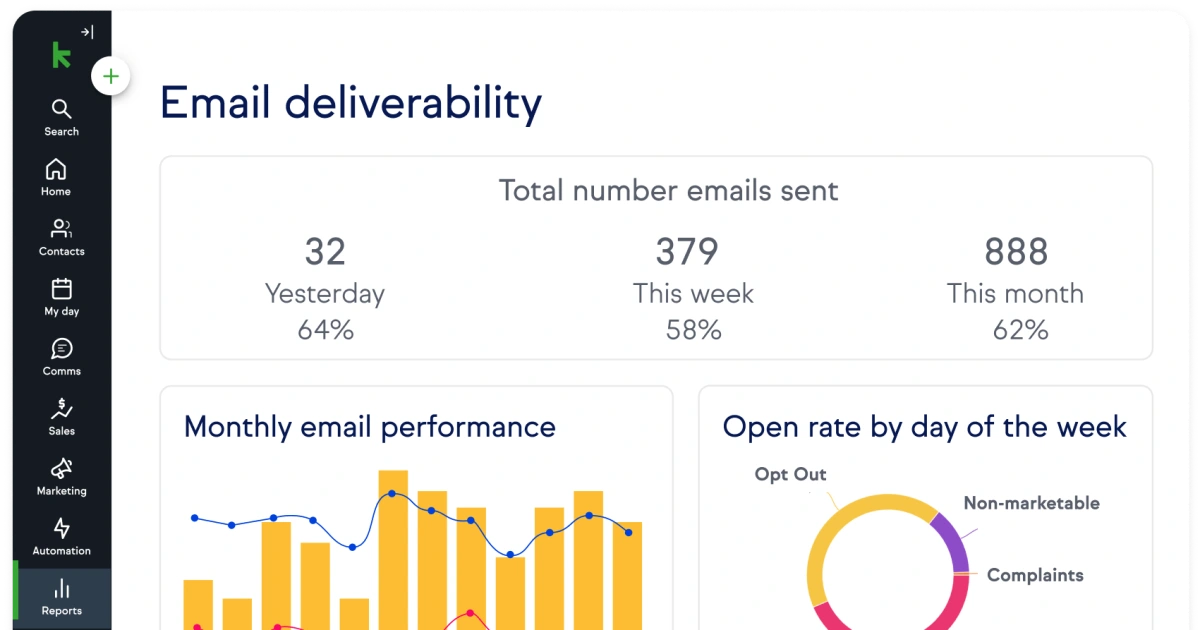
Keap touts advanced deliverability features like IP warming, dedicated IPs, and double opt-in email sign-up forms. Automated reputation monitoring protects crucial sender scores.
However, the lack of deep analytics into email delivery beyond opens and clicks makes it harder to optimize performance. With a CRM-first approach, contacts also receive more messages from the various teams touching them. This jars the subscriber experience from an email-centric platform.
Winner: Klaviyo
With email analytics and infrastructure central to its heritage, Klaviyo edges out Keap for core deliverability and inbox placement essentials. Slightly better visibility into email engagement paired with less contact fatigue drives this win.
For Keap, we’d recommend the add-on deliverability product Campaigner or another overlay tool to augment capabilities more crucial for an expansive CRM system. But with email central to its platform, Klaviyo better optimizes subscriber trust and sender reliability.
5. Customer Support and Community
Klaviyo
Klaviyo’s website provides email-based support online full-time with fairly responsive inquiries during business hours. More urgent issues can get elevated to priority assistance.
The company also offers an extensive self-service online knowledge base covering getting set up to optimizing email campaigns and troubleshooting. Standard docs are straightforward for beginners.
For community support, the Klaviyo Email Community Facebook Group’s 34K members share successes, give feedback to product teams, and answer fellow user questions.
Keap
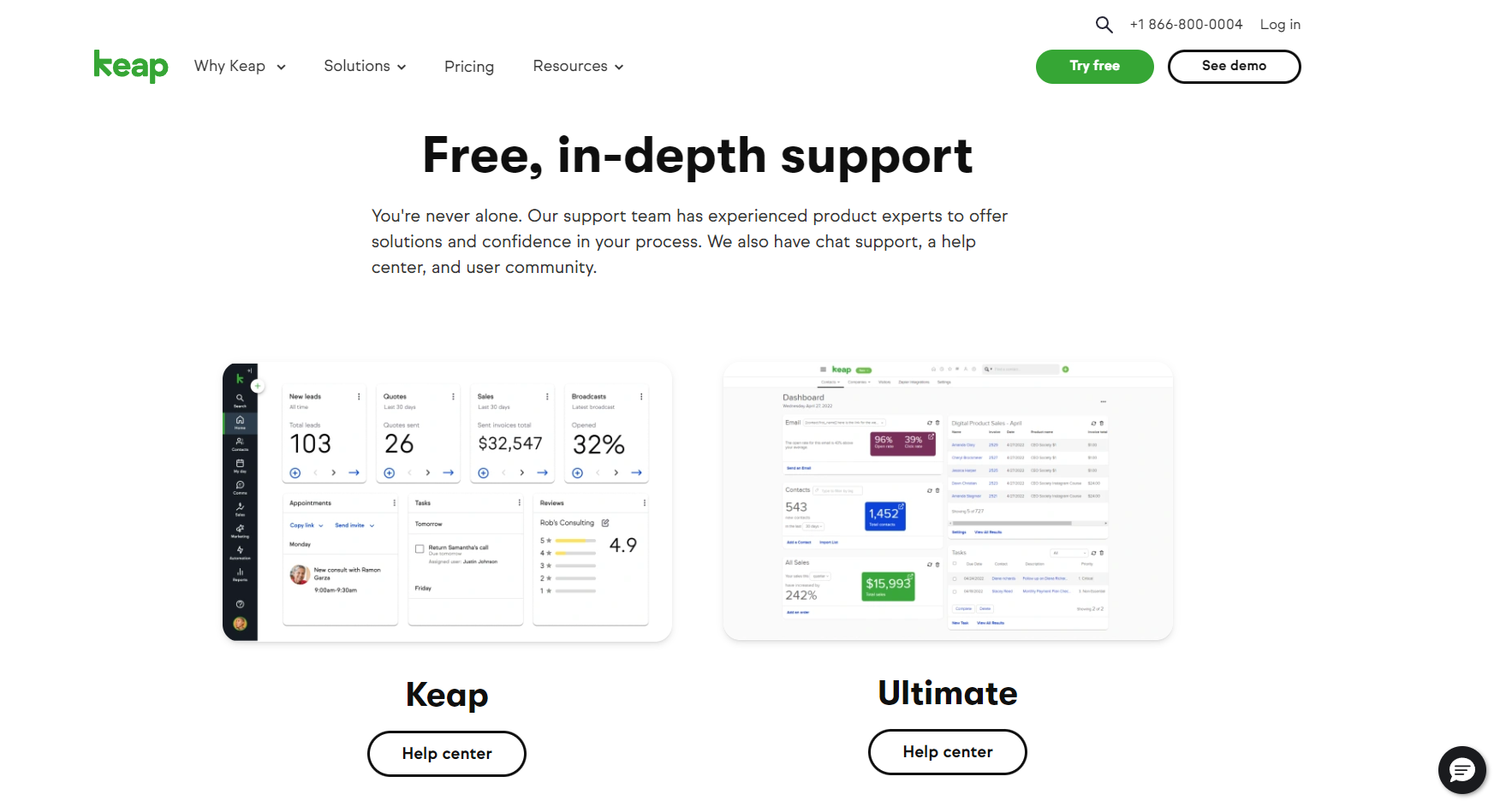
Keap provides 24/7 email & phone support across all packages including basic plans. For premier support, assigned account managers specialize in strategic guidance tailored to client scenarios.
The online Help Center spans tutorials, support contacts, and Training Center free short courses on Keap capabilities to increase proficiency. Some find docs overly dense for basics.
The Keap User Group on Facebook fosters community Q&A among its 18K+ members on everything from lead scoring advice to referral program setup.
Winner: Keap
With more extensive self-guided training content, more responsive support plans, and a longer community history, Keap edges Klaviyo in customer guidance.
However, Klaviyo still provides considerable resources between a responsive email team, an in-depth knowledge base, and an active user community – likely sufficient for most small e-commerce merchants rather than those needing full CRM mastery. For that, Keap gets the nod.
6. Integrations
Klaviyo
Klaviyo connects with e-commerce platforms like Shopify and WooCommerce for native data sharing of customers, orders, and products. This powers segmentation and personalization. Additional integrations include e-commerce functionalities, Google Analytics, Facebook Ads, SMS providers, Zapier, and 250+ other sales and marketing tools on its App platform.
While not quite as robust as Keap’s options, Klaviyo focuses on proven integrations purpose-built for common e-commerce martech stacks for all-in-one sales processes. Native Shopify and Woo syncing paired with Zapier flexibility covers needs for most online merchants rather than overkill complexity.
Keap
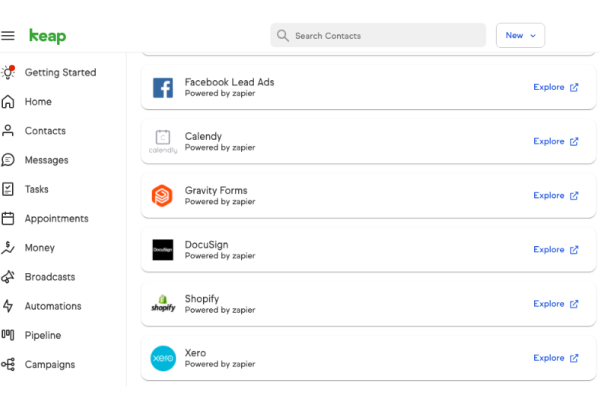
Keap offers deep CRM capabilities paired with advanced integration functionality using its Developer Toolkit and Marketplace. This caters to technology and service partners customizing Infusionsoft for vertical niches and complex sales use cases.
For small businesses, main integrations will likely center on e-commerce data (via Shopify or Woo plugins), web analytics (Google Analytics), marketing automation (MailChimp), and legacy tools (QuickBooks) through 200+ Keap partners.
Winner: Tie
We declare Klaviyo and Keap a tie for integration capabilities appropriately aligned with their broader platform positioning. Keap undoubtedly provides vastly more options for enterprise sales teams and customized workflows.
But Klaviyo smartly focuses on platform connections purpose-built for common e-commerce tech stack elements – no need to dive into complicated APIs or build custom fields for basics. For advanced needs go to Keap, but Klaviyo delivers the essentials.
7. Pricing
Klaviyo
Klaviyo uses a flat monthly pricing model based on the number of contacts, starting at $45/month for up to 500 contacts. Unlimited emails and basic features are included, with add-ons like SMS credits or enhanced deliverability available.
Klaviyo pricing is very transparent upfront with no hidden fees. Cost predictability lets you allocate an exact budget to email marketing. As Klaviyo scales pricing to the number of contacts not messages sent, it incentivizes growing your list to drive more revenue.
Keap
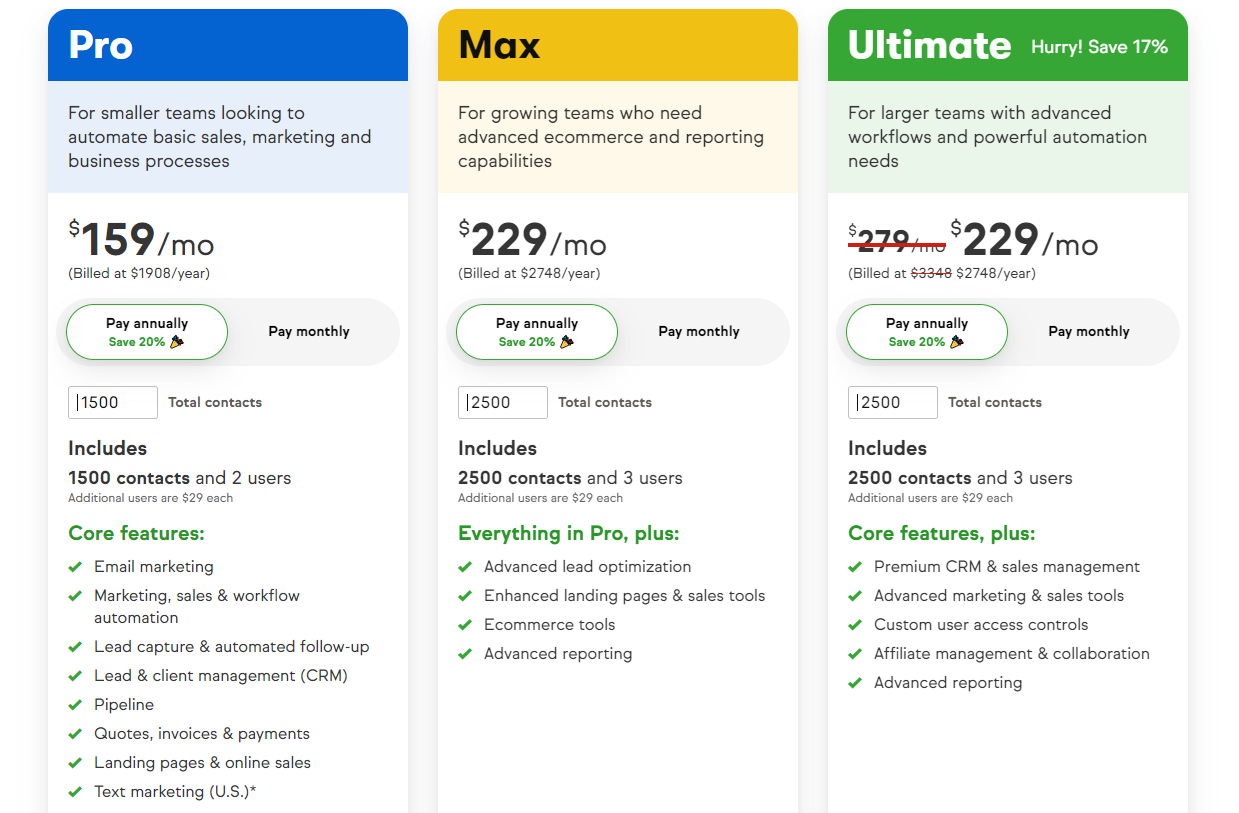
Keap pricing follows a tiered structure based on product package needs, contact volume, and optional add-ons spanning email to full CRM. Packages start at $159/month for 1,5K contacts, 2 users, and all the platform’s features, with 3 tiers up to $229/month for 2,5K contacts and 3 users.
The customizable bundles allow matching capabilities to business requirements. However, the model involves estimating needs across sales, marketing automation, e-commerce, and billing capabilities – making cost forecasting complicated for pure email-focused users.
Winner: Klaviyo
Klaviyo’s simplified usage-based pricing wins over Keap’s modules model requiring custom estimates per tier across various features. Transparent customer-based rates incentivize list growth too.
Keap offers tremendous breadth once configured for specific needs – but involves forecasting complexity and the risk of paying for capabilities that won’t get leveraged. For focused email marketing, Klaviyo’s pricing proves both superior visibility and value.
8. Reviews and Reputation
Klaviyo
Klaviyo earns strong reviews across evaluation sites like G2Crowd (4.6/5 stars) and Capterra (4.5/5). Users praise excellent email deliverability, intuitive interface, and quality support. Drawbacks mentioned include SMS limitations, limited ability to assign tasks for new emails, and a lack of expansive CRM capabilities beyond marketing automation.
Overall, Klaviyo secures acclaim in the industry as a top-rated dedicated email marketing platform optimized for e-commerce with an easy learning curve. While not as feature-packed as Keap, it wins on delivering phenomenal email results.
See Klaviyo’s reviews on G2, Capterra, and TrustRadius.
Keap
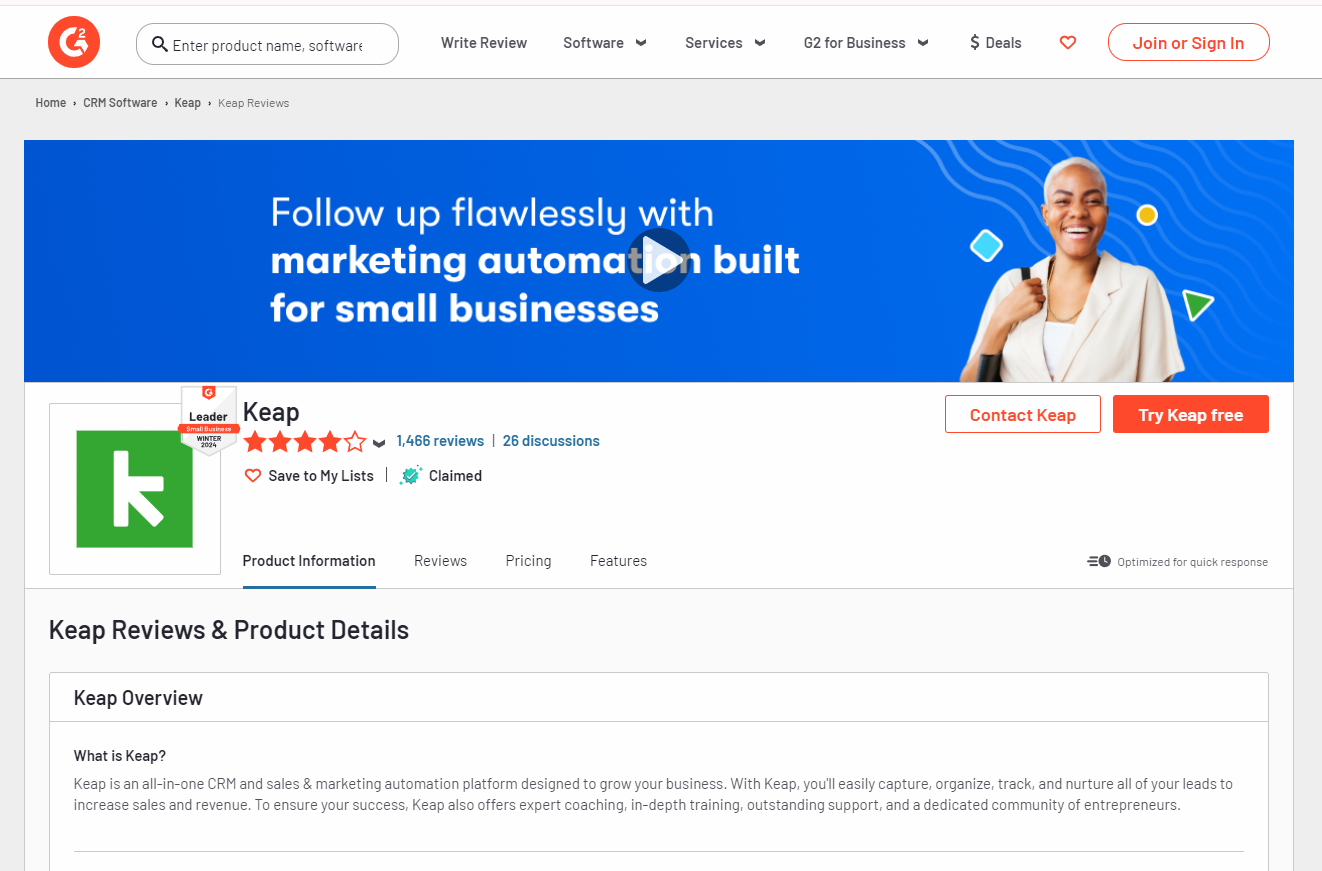
Keap garners positive reviews on sites like Software Advice (4.5/5) for the unparalleled breadth of its sales and marketing CRM abilities. However, users lament the complexity of getting configured properly and leveraging advanced functionality.
For small service businesses to large enterprises, Keap provides immense capabilities when customized fully to needs. But this power comes at the cost of beginner accessibility – you must invest heavily in implementation and training to maximize this Swiss army knife.
Winner: Klaviyo
With its purpose-built email marketing focus on achieving faster time-to-value alongside superior deliverability and an easier learning curve, Klaviyo narrowly beats Keap’s marketing Swiss army knife approach requiring heavy customization.
Unless you need end-to-end sales CRM beyond email/automation, Klaviyo satisfies you more simply. Keap has broader capabilities but lower ease of use which hinders unleashing its full potential for many customers.
9. Klaviyo vs Keap: FAQ’s
Klaviyo FAQs
- What kinds of businesses use Klaviyo?
Klaviyo focuses on e-commerce companies, online brands, lead generation sites, and other digital businesses selling directly to consumers. It’s particularly popular with Shopify merchants. - Does Klaviyo offer email personalization?
Yes, Klaviyo enables dynamic email content personalized for each subscriber using merge tags based on lifecycle stage, past purchases, on-site behaviors, and more. - Is Klaviyo just for email or does it also handle SMS?
Klaviyo can deploy highly targeted SMS messages in addition to email. Its SMS editor mirrors email capabilities, while automation workflows can trigger SMS based on customer actions.
Keap FAQs
- What industries use Keap?
Keap serves small businesses across services, retail, coaching/consulting, real estate, healthcare, and many other verticals. Particularly adopted by marketing agencies and consultancies. - Does Keap offer cloud storage?
Yes, Keap stores all client data in the cloud. It also equips users with cloud backup to avoid data loss as well as security measures like 2-factor authentication. - Can Keap integrate with QuickBooks?
Yes, Keap partners closely with QuickBooks for easy data syncing. An integration consolidates customer financial details, invoice payments, and billing all in one CRM.
Final Thoughts
Choose Klaviyo If…
Klaviyo is the best choice for e-commerce companies, online brands, and performance marketers laser-focused on using email and SMS to drive repeat sales and loyalty. With superior deliverability, segmentation capabilities, and intuitive workflow automation, Klaviyo empowers growing merchant revenue through targeted campaigns optimized for conversion.
I also recommend checking out my article on Klaviyo alternatives to broaden your search for the best email marketing platform.
Choose Keap If…
Keap stands above for service businesses needing to combine sales, marketing, and customer management capabilities into one CRM platform. Its unmatched contact timeline insights, lead scoring, and customizable pipelines make it the premier pick for consultancies, agencies, coaches, and professional services fostering complex client relationships across long sales cycles.
When selecting any business software, assess how well the features align with your strategic goals, audience needs, and capabilities to implement. Both Klaviyo and Keap
offer excellent options; choose the platform tailored closest to your requirements. Have any further questions? Don’t hesitate to ask in the comments!
